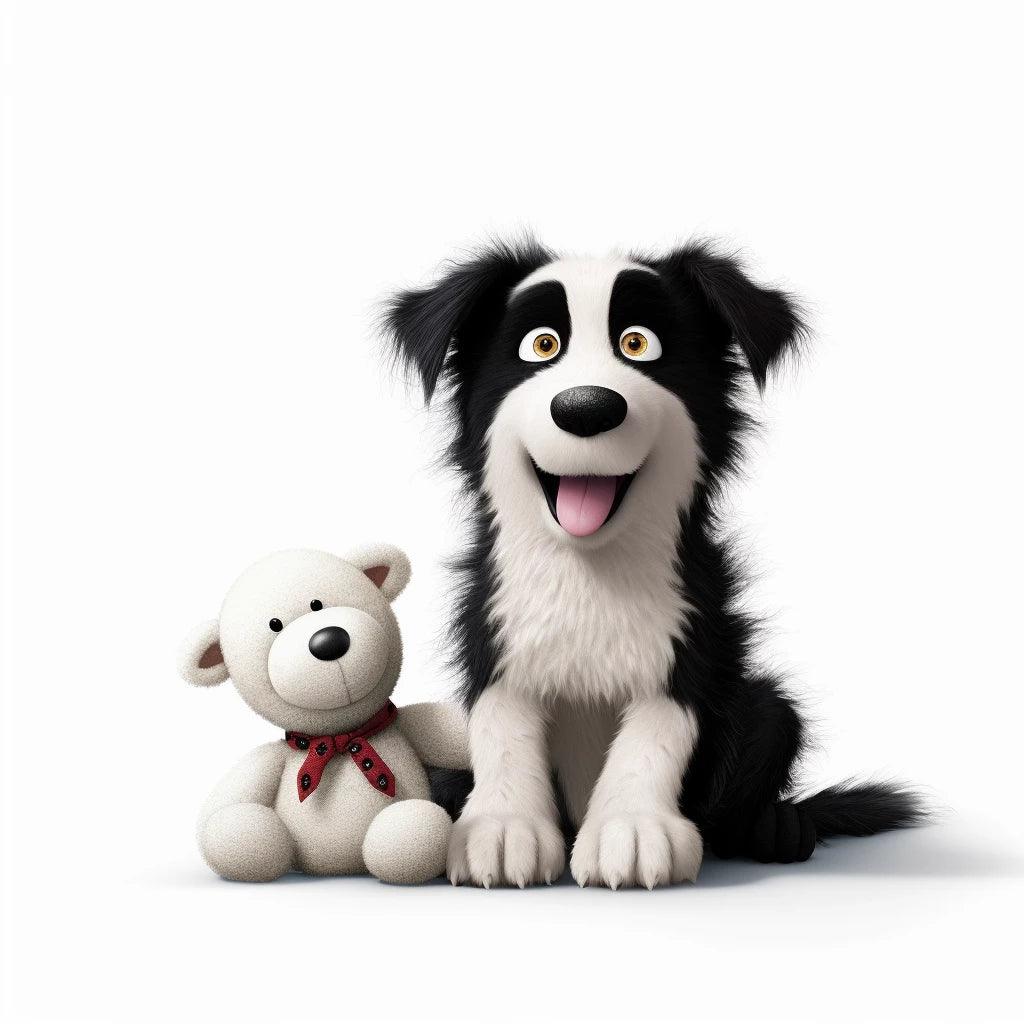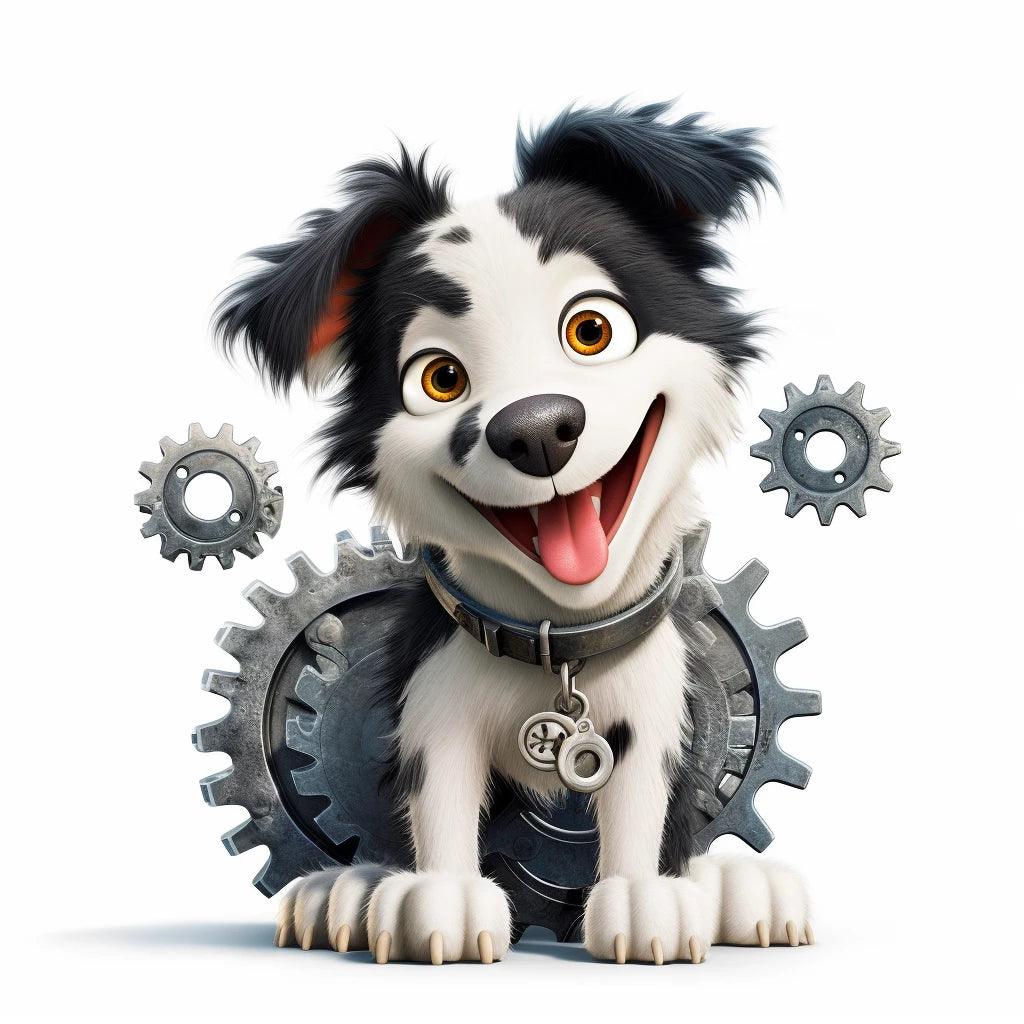
All-you-can-eat dog food: why it’s a bad idea
Share
The approach of leaving food available to your dog throughout the day, commonly referred to as “free-choice food,” may seem convenient and caring. However, this practice is far from ideal for the health and well-being of your four-legged friend. While this may seem like a way to ensure your dog never goes hungry, the reality is that this feeding method poses significant risks both physically and behaviorally.
Physical Health Risks
Overweight and Obesity
The most obvious risk of unlimited food is being overweight or obese. Without precise regulation of the amount of food consumed, it is difficult to prevent excess weight. Obesity in dogs can lead to multiple health problems, such as heart disease, diabetes, and joint disorders, reducing the quality and life expectancy of the animal.
Difficulties in Monitoring Appetite
When food is always available, it becomes more difficult to monitor changes in your dog's appetite, often an early indicator of illness. A sudden decrease or increase in appetite may go unnoticed, potentially delaying the diagnosis and treatment of underlying conditions.
Risks to Behavior and Well-being
Disruption of Natural Eating Habits
Dogs are naturally animals that eat at specific times, often regulated by hunting or foraging routines. Unlimited food disrupts these natural eating habits, potentially leading to stress and anxiety. Additionally, it may diminish the value of food as a motivational tool for training and reinforcing positive behaviors.
Territoriality and Possessiveness
The constant availability of food can encourage the development of territorial or possessive behaviors around the bowl. This is particularly problematic in households with multiple animals, where it can lead to tension or conflict.
An Alternative: Scheduled Meals
To avoid these pitfalls, veterinarians and animal behavior specialists recommend scheduled meals. This approach consists of offering your dog meals at fixed times of the day, allowing you to control its consumption while respecting its nutritional needs and its natural rhythm.
Conclusion
Although leaving unlimited food for your dog may seem like a display of generosity, the implications for his health and behavior suggest otherwise. Opting for scheduled meals not only promotes healthy weight and better diet management but also strengthens the bond between you and your dog through a structured eating routine. Taking a measured and careful approach to feeding your companion is essential to ensuring their overall well-being.
FAQs on Unlimited Food for Dogs
Q1: Why is unlimited food not recommended for dogs?
Answer: Unlimited food can lead to obesity, eating disorders, and a decreased appetite for structured meals. It can also make it difficult to monitor your dog's food intake, which is crucial for detecting health problems early.
Q2: How can I control the amount of food my dog eats?
Answer: The best way to control the amount of food your dog eats is to follow dietary recommendations based on his weight, age, and activity level. Offer meals at set times and accurately measure the amount of food at each meal.
Q3: My dog always seems hungry, what can I do?
Answer: If your dog seems constantly hungry, consider splitting his daily ration into several small meals. Also make sure his diet is high in fiber and protein to promote satiety. Consult a veterinarian to rule out any underlying health problems.
Q4: How do I know if I'm feeding my dog correctly?
Answer: A properly nourished dog should have ideal body weight, good energy, and a healthy coat. If you are unsure, consult a veterinarian for a nutritional assessment and personalized advice on your dog's diet.
Q5: Is dry or wet food better for controlling the amount consumed?
Answer: Dry food is often easier to measure accurately and can help control the amount consumed, but wet food has its own benefits, including hydration and preference for some dogs. The choice depends on your dog's individual needs and your veterinarian's recommendations.
Q6: Can I let my dog fast occasionally?
Answer: Controlled fasting may be beneficial for some dogs under veterinary supervision, but should not be practiced without professional advice. Fasting can help reset the digestive system, but it is not suitable for all dogs, especially those with specific dietary needs.
Q7: How can I transition to set meals if my dog is used to free-choice food?
Answer: To transition to fixed meals, start by offering meals at regular times while gradually reducing the amount of food available at self-serve. Encourage your dog to eat at these set times and remove the bowl after a while to reinforce the routine.
Q8: Is a food vending machine a good idea?
Answer: Vending machines can be helpful in maintaining a regular eating routine, especially if you are away a lot. However, make sure the dispenser releases the right amount of food at each meal and does not replace human interaction and supervision.






